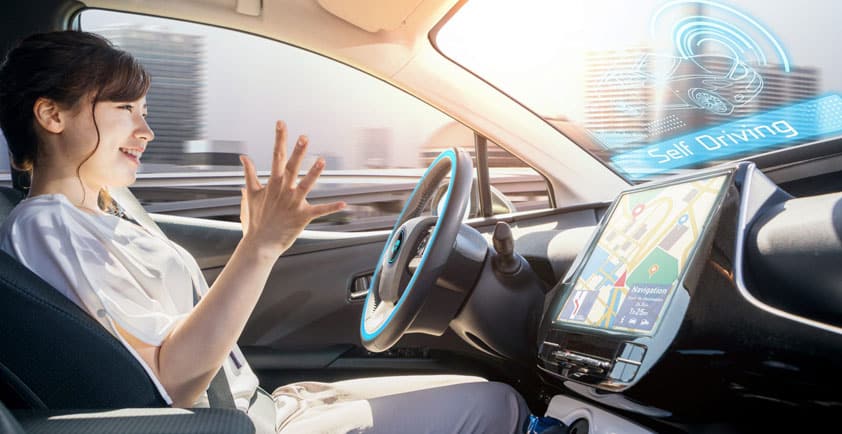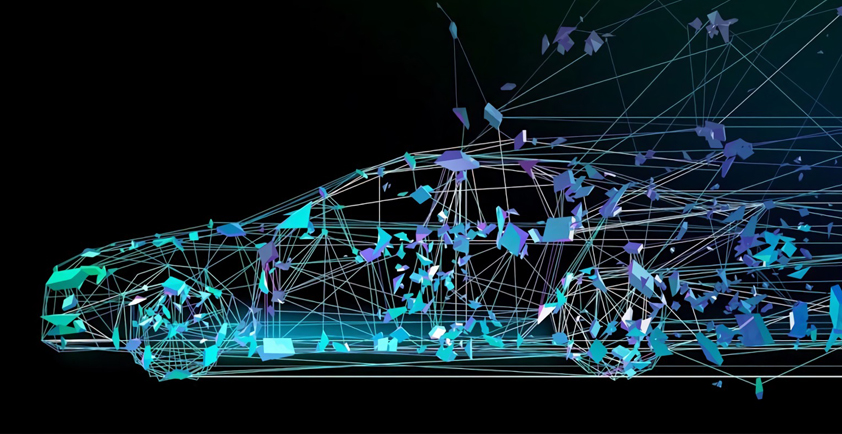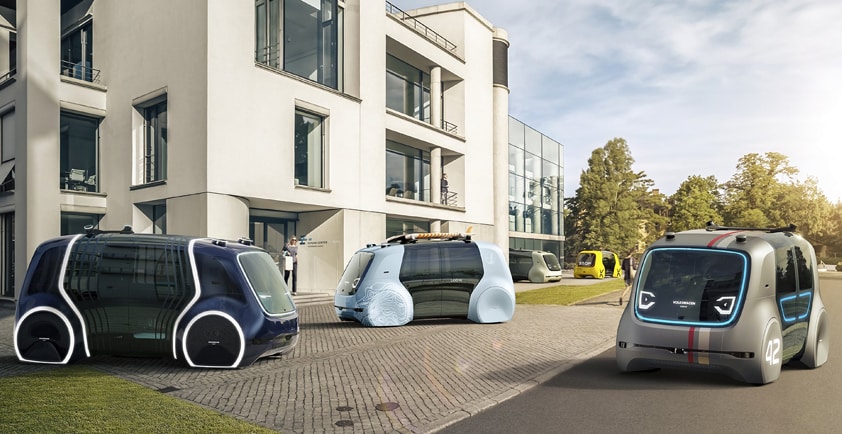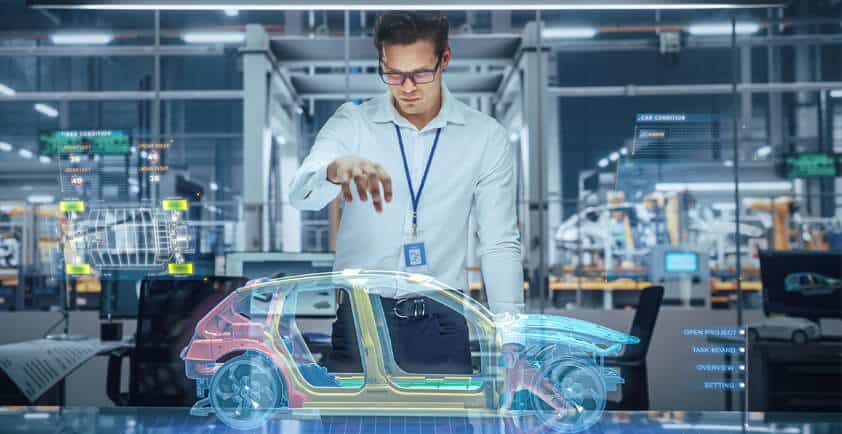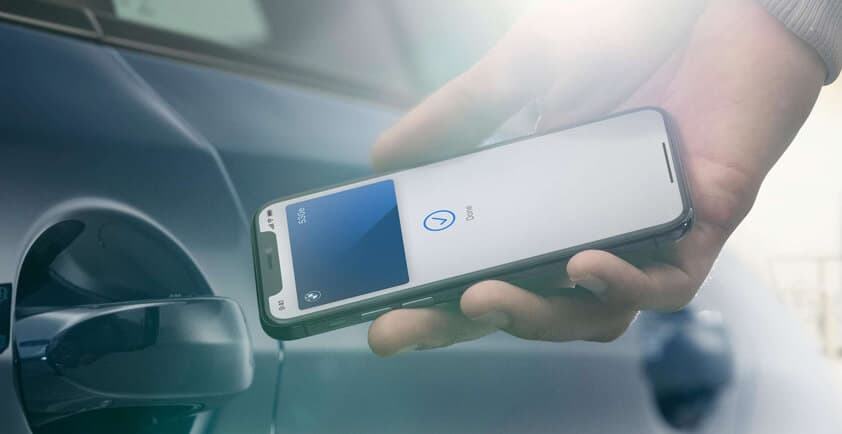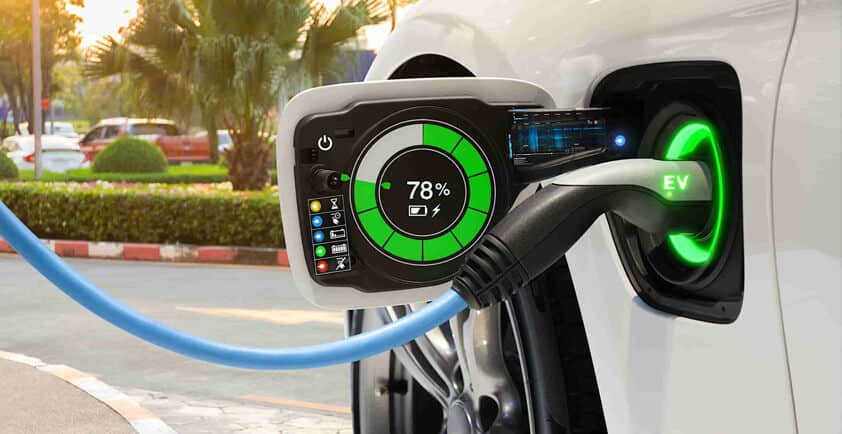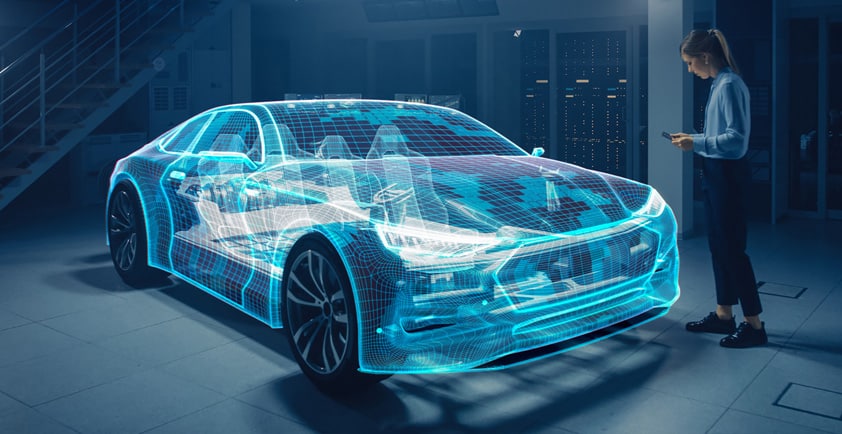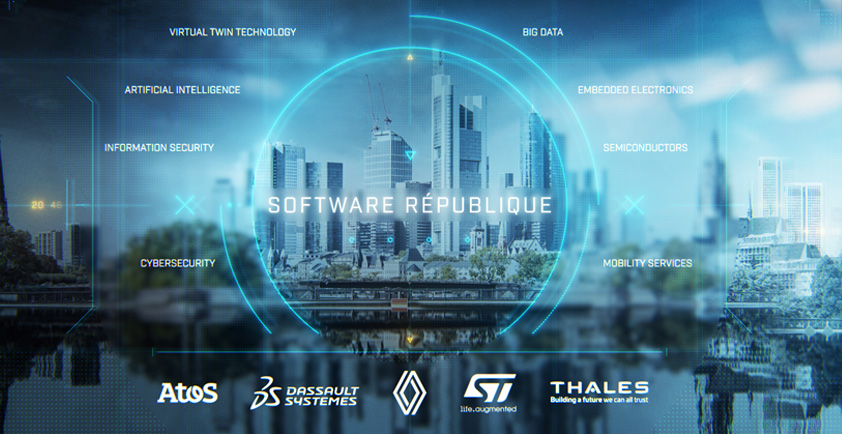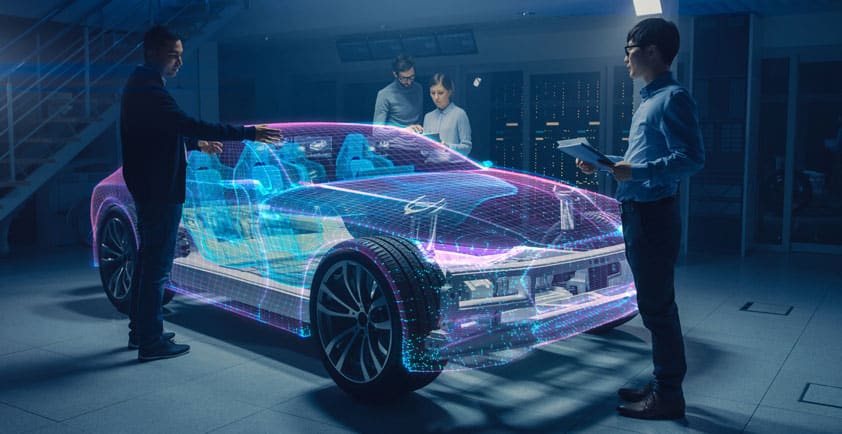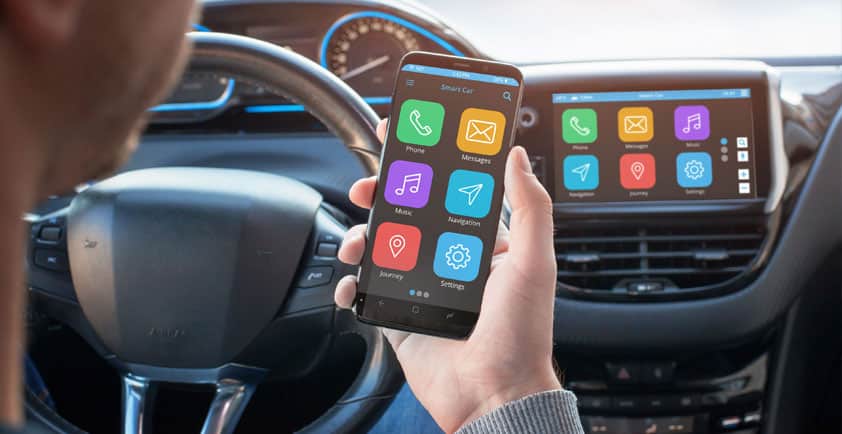
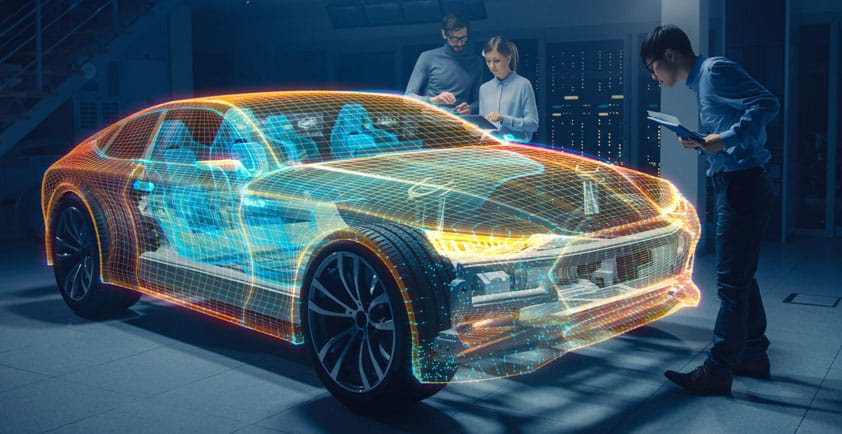
CONNECTED VEHICLE SYSTEMS
Addressing the need for Digital Trust in a connected vehicle future
The potential benefits of connected autonomous vehicles are vast and wide ranging and will likely lead to a societal rethink of how we perceive private and public mobility. Autonomous vehicles will become pervasive as society becomes more and more dependent on the availability and accessibility of mobility services in an increasingly constrained environment. Urbanisation,environmental impact, increasing population density and the need to optimise our resources will drive the demand for such technology. The challenge to industry is to not only design the safe driverless vehicles themselves, but to address the security and safety of the entire ecosystem around them. The vehicles will need to connect in real time to other vehicles (V2V) and to the road infrastructure (V2X) in order to optimise their operation and will need to interact with consumers,business owners, maintainers, service providers and Original Equipment Manufacturers (OEMs) throughout their operational life. To preserve the integrity, confidentiality and ultimately safety across all of these dimensions a new concept of Digital Trust must exist between all elements of the ecosystem.
This is challenging, not least because the moving vehicle network is a highly complex safety critical system upon which we all depend on a daily basis. Similar challenges have been addressed through increasing levels of automation within the aerospace sector but the density and proximity of road vehicles to each other and to humans and other entities brings in to focus complex engineering challenges that require a blended independent and consensus-based approach. Thales provides Trusted security within and around platforms and data to ensure that the identity, integrity and confidentiality of the ecosystem is ensured. Complete trust requires more than just adding layers of security, it requires baking TRUST into all aspects of the system throughout its lifecycle. It is critical that identity, integrity, confidentiality and ultimately safety across all of these dimensions a new concept of Digital Trust must exist between all elements of the ecosystem.

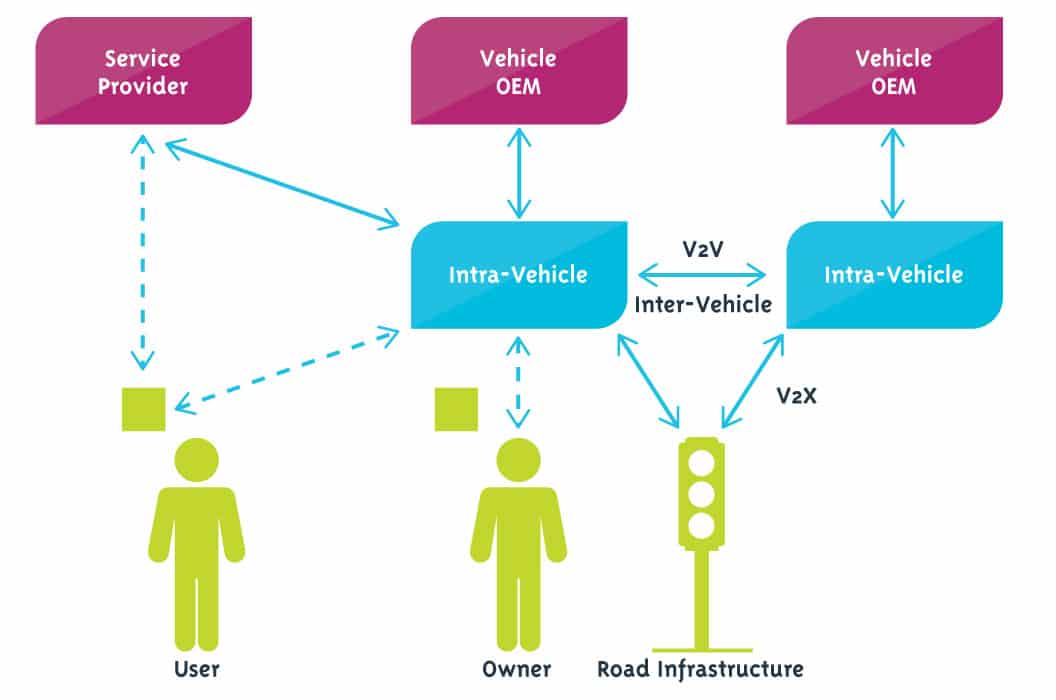
This is challenging, not least because the moving vehicle network is a highly complex safety critical system upon which we all depend on a daily basis. Similar challenges have been addressed through increasing levels of automation within the aerospace sector but the density and proximity of road vehicles to each other and to humans and other entities brings in to focus complex engineering challenges that require a blended independent and consensus-based approach.
Thales provides Trusted security within and around platforms and data to ensure that the identity, integrity and confidentiality of the ecosystem is ensured. Complete trust requires more than just adding layers of security, it requires baking TRUST into all aspects of the system throughout its lifecycle. It is critical that identity, integrity and confidentiality are considered early and implemented coherently from component manufacture to service delivery.
Whilst it is often necessary to secure system boundaries and data perimeters in static environments, in the context of connected autonomous vehicles it is also necessary to share and act on data in ad-hoc networks in real time. For this reason Thales takes a more granular approach to information security with data encrypted at source and distributed in a peer-topeer network where data can only be decrypted by entities trusted and verified to see its content. This approach lends itself to diffuse, ill-defined and dynamic systems-of-systems; variations of which will exist in the connected car environment.
Thales delivers end-to-end secure trusted systems in a wide array of complex environments ranging from space and air traffic control, to defence and security communication networks around the world. Thales also plays a significant and pivotal role in securing the supply chains of many leading blue chip companies.
A secure data infrastructure linking vehicles, infrastructure, users, OEMs and service providers can help to realise many business benefits through the digital transformation of those services.
Delivering Digital Trust
Thales provides both digital trust systems and cyber consulting. Our consulting team leverages our global insights and leadership in safety and security critical markets to solve complex problems. Our systems enable clients to go beyond security to provide TRUSTED resilient and high-performance critical information systems and networks.
Partnerships
Thales is developing partnerships within the automotive sector to deliver secure information distribution systems, be that on-vehicle, V2V, V2X or off-vehicle to a private/public cloud and OEM or service provider consumers. Thales is proud to be working with Williams Advanced Engineering, the technology and engineering services business of the Williams Group, to develop trusted security solutions for its business and its customers. Thales is also an Official Supplier to ROKiT Williams Racing.

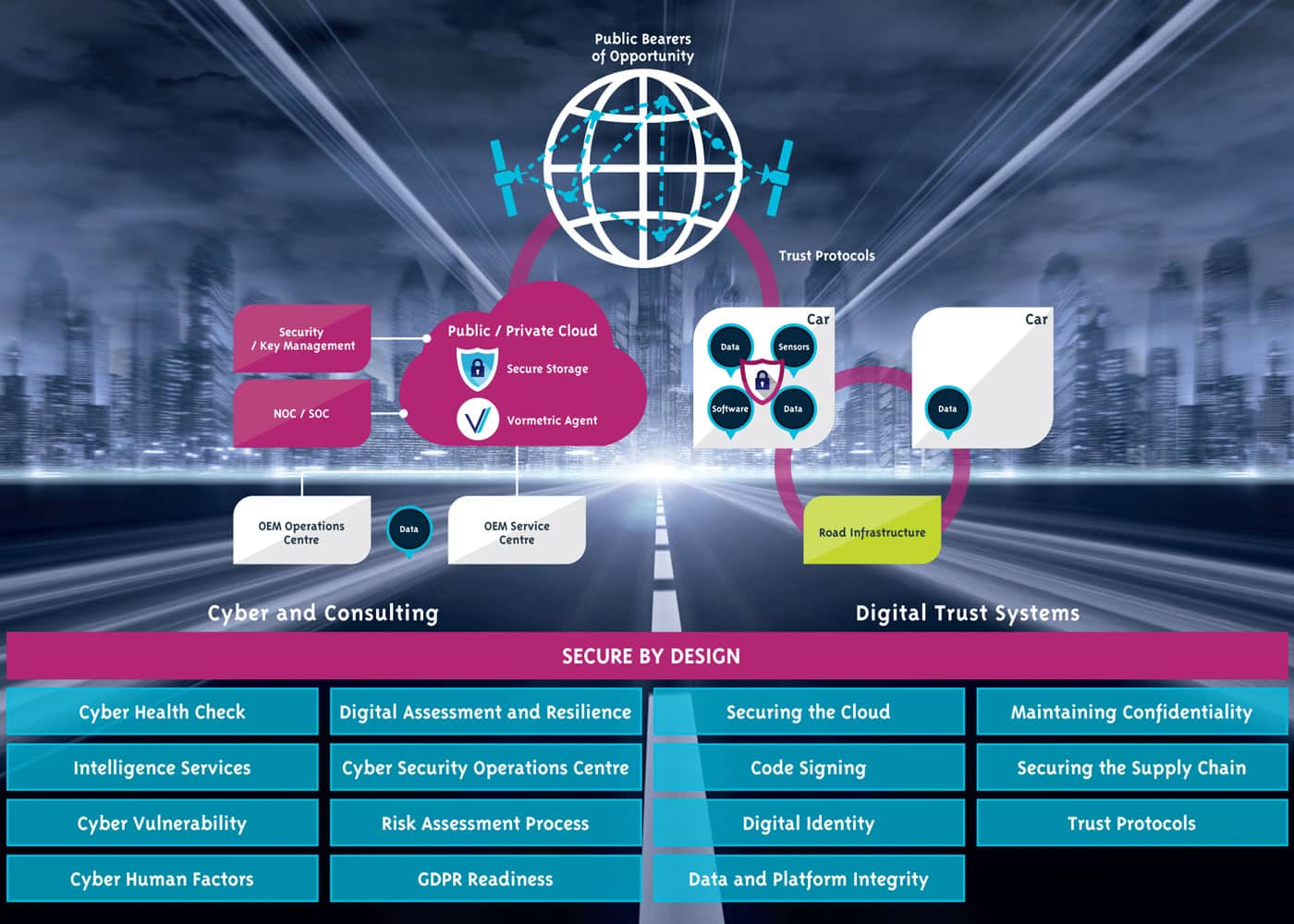
A more connected vehicle ecosystem is extensible to deliver broader benefits to the automotive sector – even before fully autonomous systems are deployed.
>> Improved HUMS: On-vehicle Health and Usage Monitoring isn’t new, but improved security makes more on-vehicle data available safely. Getting this information off-vehicle unlocks potential to the user and OEM.
>> Analytics: HUMS data taken off-vehicle can be securely relayed to OEM Operations Centres for individual and collective analysis to provide better customer service whilst providing confidentiality. This data can also be used at a more local level to allow Service Centres to provide better servicing and maintenance.
>> Event Capture & Diagnostics: Capturing the event-specific context around a vehicle degradation or failure event is critically important to the OEM in facilitating diagnosis of the root cause problem. It is essential that customer trust and privacy are preserved in the provision of such data.
>> SOTA (Software Over The Air): The integrity of software is critical and a fundamental business requirement for the OEM. Timely delivery of safety critical software and essential updates is of ever increasing importance, but simply delivering the software is insufficient. To preserve safety and integrity it must be delivered from a trusted source to a trusted system/component via a trusted bearer and that requires mutual authentication and verification.
>> Proactive Reliability Management: HUMS data, with smart analytics, can invoke proactive maintenance to optimise servicing and prevent problems developing, therefore enhancing reliability and the user experience. This data also provides clear benefits to user and to the OEM through the accumulation of detailed vehicle analytics to manage forward looking engineering plans. The confidentiality, integrity and security of this data are essential to enable trusted understanding of failures and degradations, and their knock on impacts.
>> Supply Chain Traceability: Verification of the supply chain has always been important but even more so for increasingly autonomous systems where the importance of verifying the legitimacy of all the components within it, is critical to safety assurance.
>> Life Cycle Management: More accurately understanding the capabilities, limitations and deficiencies in system components allows OEMs to engineer more sustainable solutions and services, driving greater profit and efficiency.
